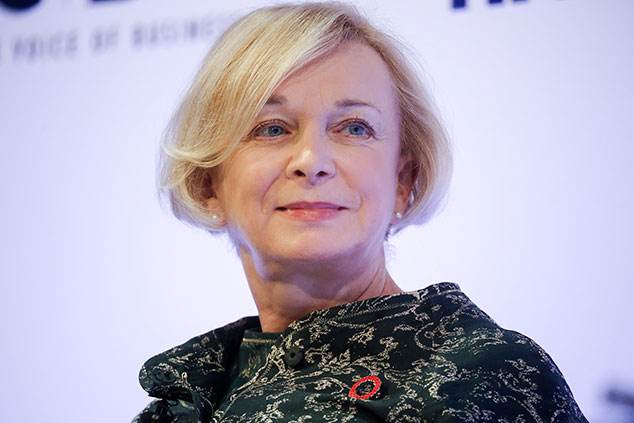
If Labour comes to power, it has promised to renationalise the country’s postie. It should leave well alone – the business is doing just fine as it is, says Max King.
Moya Greene, the chief executive of Royal Mail, is rumoured to be up for replacement. But as she eyes the exit, she should be proud of a job well done. In her time at the helm, since taking over in 2010, she has done a sterling job. On her arrival, the company was locked into a downward spiral from which there seemed no escape. Thanks to internet and email, letter volumes were in relentless decline.
Yet Royal Mail was still required to offer daily deliveries to all households in the UK on a single pricing structure. In parcels delivery, competition was intense from rivals, not least Amazon, able to cherry-pick the most profitable deliveries in urban areas. Service levels were poor, the business under-invested, employee numbers excessive, efficiency low and there was a large and growing pension-fund deficit. The business was all but worthless as a going concern.
The best-priced privatisation of all
Three years later, Royal Mail was privatised – the business was valued at £3.3bn and the government retained just a 30% stake. The 150,000 employees were given 10% of the company for free, with a further 2% to follow.
When the shares soared to a 40% premium on the first day of dealing, Vince Cable, then the business secretary in the Tory-Lib Dem coalition government, was accused of having underpriced the flotation, but the exuberance of the first three months was followed by a more sober assessment of the medium-term challenges. In the next three years, the share price dipped towards but never through the issue price and Royal Mail fell out of the FTSE 100. It turned out to have been one of the best-priced privatisations of all.
Moya Greene, previously chief executive of Canada Post, had realised that crisis measures, though tempting in the short term, would be counter-productive in the long term. She chose to work with the unions to improve working practices and reduce costs while avoiding compulsory redundancies.
In early February this resulted in an agreement in principle on pensions, pay, a shorter working week, and operational changes that should avert the threat of strikes for at least two years. The defined-benefit pension scheme is being closed to new accruals and employees shifted to a collective defined-contribution scheme, thereby removing an important financial risk for the company.
Delivering profits
Inevitably, letter volumes continued to decline, though revenue remained flat. In UK parcels, though, Royal Mail maintained its market-leading position, with both volumes and revenues growing at 5%-6% per annum, while a number of competitors dropped out of the market. The underlying growth in international parcels, accounting for 25% of total revenue but 40% of operating profit, grew to 9%.
Moya Greene is not one for exuberant statements or extravagant claims. The company was, as she put it, “on target to deliver £600m of cost avoidance over the three years to 2017-18” through productivity improvements of 2%-3% per annum. The “good” performance (7% growth in underlying profits) in the first half was qualified by a warning about “continuing business uncertainty”. Investors, however, are starting to look through this caution to the better long-term prospects, driving the share price up in recent months. The company, 20% of which is owned by staff and retail investors, returned to the FTSE 100 index in March, just six months after its relegation.
A historic multiple, at 570p, of below 13 times earnings and a dividend yield over 4% is hardly generous, given that the decline in letter volumes should bottom out, parcels volumes in the UK and overseas continue to grow and costs remain under control. A potential bonus would be one or more competitors dropping out of the market or, as with Amazon and Canada Post, choosing to operate through Royal Mail rather than against it.
Ideological blunders
That, however, is unlikely from Amazon, DHL or anyone else while the threat of renationalisation under a Labour government, for purely ideological reasons, hangs over Royal Mail. The likely consequence of that would be a return to the downward spiral of operational and financial performance that was in full swing less than ten years ago. This most recent of privatisations is clearly working for employees, customers and investors, but in the febrile state of current politics, public opinion doesn’t care that, for the first time for decades, a 500-year-old business would now be on firm foundations if only the politicians would leave it alone.